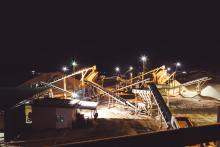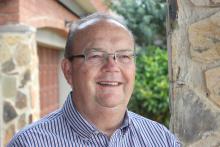A very welcome recent news story coming out of South Africa has been Aspasa, the country’s surface mining and quarrying industry association, reporting that it was moving into a third year without a death on a members’ work site. A key factor within that highly encouraging statistic has been the association’s members’ adoption of advanced health and safety systems designed to minimise injuries in their mines and quarries.
Adding to the notability of the ‘zero deaths’ news is the fact that Aspasa represents hundreds of mining operations including quarries, surface, dimension stone, salt and other mainly small and medium-sized operations, accounting for a sizeable portion of the overall manpower employed in the mining sector.
Based on ISO standards and adapted to cater for local requirements, the health and safety systems are audited annually, and non-compliances communicated directly to responsible persons on the mine site. In the event of serious transgressions, the mine is given a fixed-time period to rectify the problem or have its Aspasa membership revoked.
Although strict, the health and safety programme also highlights good achievements and it is said by Aspasa to have become a prestigious feat among the industry’s health and safety professionals to excel in the programme. Ongoing workshops dealing with specific areas of concern as highlighted by the Department of Mineral Resources, as well as the industry and unions, are also hosted by professionals in these fields.
The work of Aspasa and its members in this area is best practice not only for the rest of the African continent, but for the rest of the world, including this magazine’s two other key regions of Asia and the Middle East.
In Asia, I saw first-hand during a trip with Metso to South Korea last June how several leading quarry operators in the East Asian nation are prioritising employee health and safety, along with the deployment of environmentally minded dust and noise suppression solutions.
In my time as editor of ABI, I’ve also reported on cement and aggregates processing firms in China whose attention to detail on health and safety and environmentally friendly production methods is as good as anything I’ve seen in Europe and North America.
As such, it’s no surprise that Chinese authorities are in the process of closing small, inefficient and eco-averse quarries, at the same time as many provinces are banning the use of natural river sand, leading to many aggregates producers turning to manufactured sand production. This magazine has highlighted how similar state bans on natural river sand cultivation in India are also creating a buoyant manufactured sand market there.
Greater automation in aggregates production is also a key ally in efforts to improve health and safety on African, Asian and Middle Eastern quarry sites, with fewer workers required to carry out certain potentially hazardous machine operation, repair or maintenance tasks.
Increasing jobsite automation is also leading to more efficient ABI regions’ aggregates production. For example, Bhopal, central India-headquartered road-building firm Dilip Buildcon, whose CEO, Devendra Jain, I interviewed for this magazine in 2017, makes a sizeable sum from bonus payments for early highway project completions. Jain told me that a key feature of Dilip Buildcon’s success was only using premium aggregates processing plant, which, given their high quality, also come with built-in environmentally friendly benefits, such as noise suppression technology. It’s increasingly a win-win scenario when it comes to employee health and safety and environmentally friendly and efficient production in the quarries and surface mines of Africa, Asia and the Middle East.







